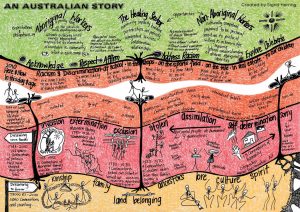Leadership Legacies
Thank you for attending the training. Below are the PowerPoints, resources and further information.
Review | Coaching Session
Please keep adding notes to your participant workbook as you take the learnings back into your work. We look forward to seeing you at the three sessions as part of your package. Below are the upcoming sessions - please save the details into your calendar.
Note this page will be regularly updated with Zoom links and additional dates and should you not be able to attend one of the 3 sessions following your training feel free to attend 3 sessions that suit you within the following 12 month period.
Yamurrah Leadership Legacies Coaching Session 02
Time: 7 February 2025 02:00 PM (Sydney Time)
Join Zoom Meeting
https://us02web.zoom.us/j/89492683676?pwd=jr9vnY3TjGXTVbSDzw8i4Oe6Bzcase.1
Meeting ID: 894 9268 3676
Passcode: 540304
Yamurrah Leadership Legacies Coaching Session 03
Time: 21 March 2025 02:00 PM (Sydney Time)
Join Zoom Meeting
https://us02web.zoom.us/j/85986614757?pwd=vGRB0IoetJ2ZVfXGiLtqmbloHVXHab.1
Meeting ID: 859 8661 4757
Passcode: 184230
Further sessions will be added throughout 2025.
Please don't hesitate to reach out anytime if you have any questions: info@yamurrah.com.au
PowerPoint
CRTI Leadership Training Copyright Yamurrah 2024
Resources
An Australian Story by Sigrid Herring Download PDF
Blue Knot - Resources Page: www.blueknot.org.au
Videos
Kanyini (first 13 minutes)
This video was not shown or referred to in the training but a great resource, a short meditation created by Yamurrah. Use for yourself, share with your First Nations colleagues, clients or anyone you think may benefit.
Yamurrah - A moment to heal ourselves (4 minutes)
References
Bondebjerg I., “The creative mind: cognition, society and culture” (2017) Palgrave Communications
Cozolino L., The Pocket Guide to Neuroscience for Clinicians (New York: W. W. Norton & Company, 2020)
Cozolino L., The Neuroscience of Human Relationships: Attachment and the Developing Social Brain, 2nd Ed, (New York: W.W. Norton & Company, 2014)
Cranston S., Keller S. “Increasing the meaning quotient of work” (2013) (2013) McKinsey Q.
Csikszentmihalyi M., Flow: The Psychology of Optimal Experience (New York: Harper Perennial, 2008).
Damasio A., The Strange Order of Things: Life, Feeling, and the Making of Cultures (New York: Pantheon Books, 2018)
Kotler S., The Art of Impossible: A Peak Performance Primer (New York: Harper Collins, 2021)
Gold J., Ciorciarci J., “A Review on the Role of the Neuroscience of Flow States in the Modern World” (2020) Behav Sci 10(9)
Fullagar C., Kelloway E., “Flow at Work: An Experience Sampling Approach” (2010) Journal of Occupational and Organizational Psychology
Dietrich A., “Transient Frontality as a Mechanism for the Psychological Effects of Exercise” (2006) Psychiatry Research
Peifer C., “Psychophysiological Correlates of Flow-Experience” in S. Engeser, ed., Advances in Flow Research (New York: Springer, 2007).
Gaggioli A., et al “Networked Flow: A framework for understanding the dynamics of creative collaboration in educational and training settings” (2011) The Open Education Journal
Kotler S., “What are Flow Triggers? 22 Examples to Unlock Flow State” (August 23, 2023). Last viewed, 19 March 2024: https://www.flowresearchcollective.com/blog/flow-triggers
Lakoff G., “The neural theory of metaphor.” In Gibbs R., (ed) The Cambridge Handbook of Metaphor and Thought (Cambridge: CUP, 2008)
Black, C., Frederico, M., & Bamblett, M. (2019). Healing through connection: An Aboriginal community designed, developed and delivered cultural healing program for Aboriginal survivors of institutional child sexual abuse. The British journal of social work, 49(4), 1059-1080.
Gee, G., Dudgeon, P., Schultz, C., Hart, A., & Kelly, K. (2014). Aboriginal and Torres Strait Islander social and emotional wellbeing. Working together: Aboriginal and Torres Strait Islander mental health and wellbeing principles and practice, 2, 55-68.
Kerrigan, V., Lewis, N., Cass, A., Hefler, M., & Ralph, A. P. (2020). “How can I do more?” Cultural awareness training for hospital-based healthcare providers working with high Aboriginal caseload. BMC Medical Education, 20, 1-11.
Kezelman, C & Stavropoulos,P (2012) Translating the Insights: Implications for Trauma Specific and Trauma Informed Practise The Last Frontier: Practise Guidelines for the Treatment of Complex Trauma and Trauma Informed Care and Service Delivery, Adults Surviving Child Abuse
Lawrie, R and Cousins, C (2018) Reclaiming our safe ways of parenting how trauma research is supporting Aboriginal ways of child rearing
Newsletter Autumn 2018 | RECLAIMING OUR SAFE WAYS OF PARENTING HOW TRAUMA RESEARCH IS SUPPORTING ABORIGINAL WAYS OF CHILD REARING (partica.online)
Reynolds, V. (2011). Resisting burnout with justice-doing. International Journal of Narrative Therapy & Community Work, (4), 27-45.
Reynolds, V. (2012). An ethical stance for justice-doing in community work and therapy. Journal of Systemic Therapies, 31(4), 18-33.
Swart, T., et al, Neuroscience for Leadership: Harnessing the Brain Gain Advantage (London: Palgrave McMillan, 2015)
Tucker, D., et al, “Social and Emotional Regulation”. In J. Grafman, K Holyoke & F. Boller (Eds.) Structure and functions of the human prefrontal cortex (New York: NY Academy of Sciences, 1995),
Sherwood, J. M. (2010). Do no harm: Decolonising Aboriginal health research (Doctoral dissertation, UNSW Sydney).
Stephen G., Silbert L., Hasson U., “Speaker-listener neural coupling underlies successful communication”
Terare, M., & Rawsthorne, M. (2020). Country is yarning to me: Worldview, health and well-being amongst Australian First Nations people. The British Journal of Social Work, 50(3), 944-960.

